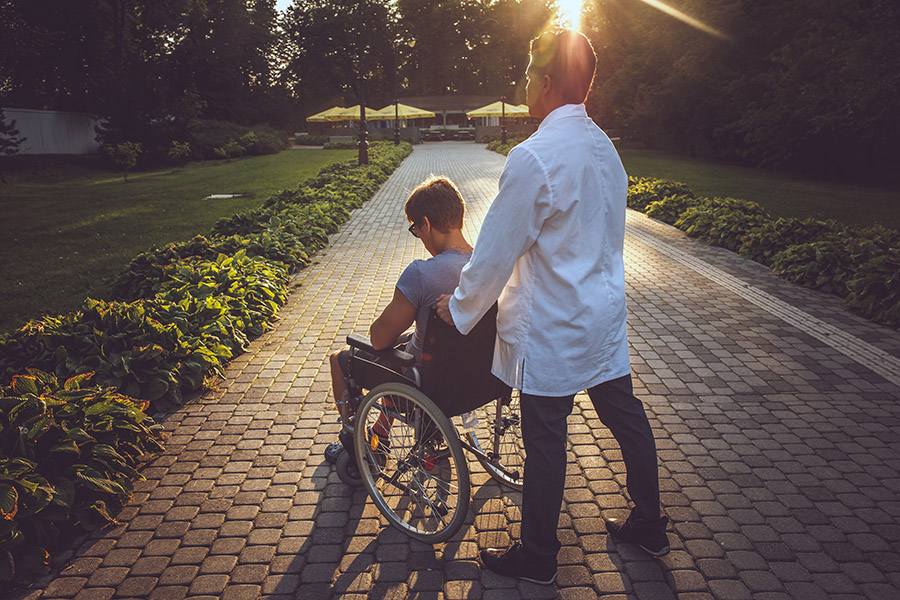
Occupational therapy plays an important role in health and medical services around the world and should be considered as a critical part of healthcare in Oman, says occupational therapist at Al Harub Medical Centre.
What do occupational therapists do? How does it work?
Occupational therapists help people to overcome the side effects of disability caused by illness, ageing, or accident so that they are able to carry out their day to day work with ease. Depending on the problem, the occupational therapist can help in the following ways:
1. Helping the person overcome disability: It educates the patient on how to do things with the help of their own abilities. For example: Techniques in remembering facts in times of poor memory, dressing or cooking with only one hand or easy use of wheelchair, and more. It also teaches the patient to maintain and improve the abilities. It also tries to improve coping strategies, increase strength and coordination, boost confidence, and improve concentration.
2. Adapting the material or equipment one uses: Occupational therapists helps to adapt to some of the household items used. They help in implementing the changes in the things one uses around the house. For example, use of a can opener that can be manoeuvred with only one hand; car modifications such as one-handed steering wheels or hand operated accelerators, brakes and bicycles modifications. It also suggests modification in the things one uses at work or school. For example, a special chair to help a patient in need to sit up straight, self-opening scissors, and writing boards to help keep paper still. These modifications can also be done for leisure activities.
3. Recommending changes to the environments where one does occupations: It recommends changes in the physical layout of the work place, home, or school. Some examples are wheelchair ramps and adjustable desktops. The health professional can also help in finding out about the support in your community.
What are the services that are provided in this?
Focusing on the environment that is suitable for the person occupational therapists does an individualised assessment of one’s performance in self‐care, work, study, volunteerism, and leisure. On the basis of that a plan is formulated.
What is the role of an occupational therapist?
Occupational therapists have different roles to perform. They deal with adults and children with different conditions, most commonly the ones related to mental health illness, physical or learning disabilities. Some occupational therapists deal with specific conditions like arthritis, neurology, hand therapy developmental coordination disorder, mental illness, or spinal cord injury.
Is occupational therapy only related to autism and people with other special needs? Or is it equally important in other conditions? If so what are they?
Occupational therapy help children with disabilities to cope in school and other social situations. It also helps adults to recover from physical injury and regain their lost skills. It provides support for aged people, those who are experiencing physical, cognitive, and mental changes. Occupational therapists also help children in achieving their developmental milestones such as fine motor skills and hand-eye coordination. One of the important roles of an occupational therapist is also to educate and involve parents, teachers and others to facilitate the normal development and learning of children.
For the aged, an occupational therapist helps clients to regain or enhance their daily lives after specific events such as hip replacement or stroke. And for acute care they render specialist interventions in various health conditions including surgery, burns, HIV, and acute mental health.
How important is occupational therapy in Oman? Are people aware of this?
Occupational therapy plays an important role in health and medical services around the world and should be considered as a critical part of healthcare in Oman, especially with its rapidly growing population. Occupational therapists have the knowledge and training to assist people across the lifespan, with varying disabilities, injuries and levels of function. They can have a vital influence on not only an individual’s well-being, independence and daily functioning, but that of their family, friends, carers, and the greater community as a whole. The level of awareness and understanding of what occupational therapy is seems to be limited amongst the general population in Oman. In fact, people have a difficulty differentiating between an occupational therapist, physical therapist, child psychologist, and social worker.
What are the main areas of concerns here in Oman where occupational therapy is concerned?
Najat Saif Mohammed Al Busaidy and Alan Borthwick published a study in 2012 suggesting that “Occupational therapy in Oman is under-researched; work is needed to confirm cross-cultural validity of specific assessments and practice models.”
Occupational therapists, as well as the other allied health specialists, could certainly benefit from more funding and support in both public and private sectors. There are a limited number of therapists currently working across the health sector and a definite lack of positions available. A professional alliance group in which therapists could share knowledge, experience and support each other would be a great initiative.
–[email protected]
Al Harub Medical Centre
Way No. 2830, House 2258
Al Kharijiyah Road
Sarooj - Shatti Al Qurum
Call: +968 2460 0750